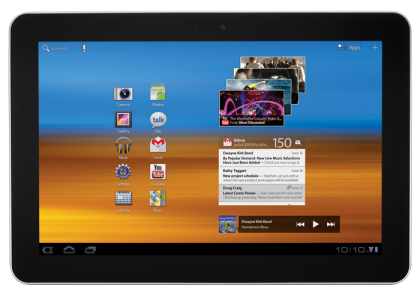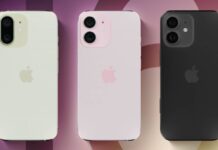A few months ago, Apple sued Samsung in Great Britain claiming that the Asians infringed on certain patents regarding the design and functionality of the tablet. Although those from Apple supported their claims before the UK court, the judge who presided over the case decided that Samsung's tablets do not infringe Apple's patents because they are not as "cool". The judge claims that Samsung's tablets cannot be compared with Apple's because they do not have the same simple and beautiful design, and they do not have the same functions.
Samsung Electronics won an intellectual property ruling against Apple as a UK judge said the Galaxy tablet isn't "cool" enough to be confused with the design for the iPad. The Galaxy tablet does not infringe Apple's registered design, Judge Colin Birss said in a ruling today in London. He said that consumers weren't likely to get the two tablet computers mixed up. The Galaxy tablets "do not have the same understated and extreme simplicity which is possessed by the Apple design," Birss said. "They are not as cool."
Judge Birss found that Samsung's products were distinctive because they were thinner and had "unusual details" on the back. He gave Apple 21 days to appeal the decision.
The judge claims that Samsung tablets are thinner than iPad tablets and have strange design elements on the back, so users have no way to confuse one product with the other. To be honest, this is the first time that a judge invokes such reasons to reject such a process, but it is not excluded that others will take his stance. In response to this victory, those from Samsung they published a press release describing the whole problem and of course attacking Apple for having the courage to sue them.
"In a ruling on July 9, 2012, the High Court of England & Wales sided with Samsung that the designs of the Galaxy Tab series of products are 'different' from an Apple tablet design, and do not infringe Apple's Registered Community Design No. 181607-0001. Samsung products subject to this trial were the Galaxy Tab 10.1, the Galaxy Tab 8.9, and the Galaxy Tab 7.7.
"Samsung had requested this voluntary trial in September 2011, in order to oppose Apple's ongoing efforts to reduce consumer choice and innovation in the tablet market through their excessive legal claims and arguments. Apple has insisted that the three Samsung tablet products infringe several features of Apple's design right, such as 'slightly rounded corners,' 'a flat transparent surface without any ornamentation,' and 'a thin profile.'
"However, the High Court dismissed Apple's arguments by referring to approximately 50 examples of prior art, or designs that were previously created or patented, from before 2004. These include the Knight Ridder (1994), the Ozolin (2004), and HP's TC1000 (2003). The court found numerous Apple design features to lack originality, and numerous identical design features to have been visible in a wide range of earlier tablet designs from before 2004.
"Equally important, the court also found distinct differences between the Samsung and Apple tablet designs, which the court claimed were apparent to the naked eye. For instance, the court cited noticeable differences in the front surface design and in the thinness of the side profile. The court found the most vivid differences in the rear surface design, a part of tablets that allows designers a high degree of freedom for creativity, as there are no display panels, buttons, or any technical functions. Samsung was recognized by the court for having leveraged such conditions of the rear surface to clearly differentiate its tablet products through 'visible detailing.'
"Samsung welcomes today's ruling by the High Court, which affirms Samsung's commitment to protect its own intellectual property rights while respecting those of other companies. Samsung believes Apple's excessive legal claims based on such a generic design right can harm not only the industry's innovation as a whole, but also unduly limit consumer choice."

















